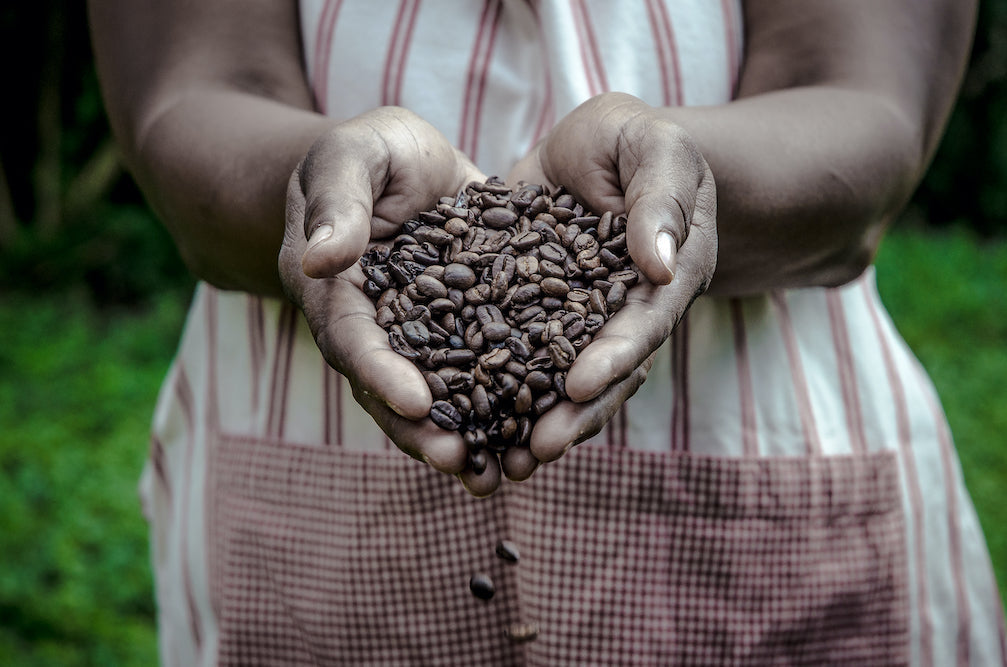Green Mountain Coffee Roasters is a company that’s passionate about coffee and the communities that grow it. They’ve built their business on a commitment to sustainability, ethical sourcing, and responsible practices. Through their partnerships with farmers and other organizations, they’re working to make the coffee industry more equitable and environmentally friendly.
Their Mission
Green Mountain Coffee Roasters’ mission is to provide high-quality coffee that’s sourced sustainably and ethically. They’re committed to improving the lives of the farmers who grow their coffee and the communities they’re a part of. By prioritizing sustainability and ethical practices, they’re helping to ensure a better future for the coffee industry and the planet as a whole.
Their Values
Green Mountain Coffee Roasters’ values center around sustainability, social responsibility, and transparency. They believe in treating everyone with respect, from the farmers who grow their coffee to the customers who enjoy it. They’re dedicated to making a positive impact on the environment and the communities they work with, and they strive to be transparent about their practices and their impact.
Their Impact
Green Mountain Coffee Roasters‘ impact is widespread and far-reaching. They’ve implemented programs that increase access to clean water, plant trees, and improve the livelihoods of coffee farmers. They’re also working to combat climate change through their support of World Coffee Research; an industry collaboration focused on developing varietals that can withstand the effects of climate change.
Their Core Business
Green Mountain Coffee Roasters’ core business is sourcing, roasting, and distributing high-quality coffee. They offer a variety of blends and single-origin coffees, all of which are sourced sustainably and ethically. They work closely with farmers to ensure they’re paid fairly for their beans and that their working conditions are safe and healthy.
Their Responsibility
Green Mountain Coffee Roasters takes its responsibility to the environment and the communities it works with seriously. They’re committed to reducing their environmental impact by implementing sustainable practices in their roasting and packaging operations. They also work with farmers to implement sustainable farming practices and provide them with resources to improve their livelihoods.
Final Thoughts
Green Mountain Coffee Roasters is a company that’s positively impacting the coffee industry and the planet. Through their commitment to sustainability, ethical sourcing, and responsible practices, they’re helping to ensure a better future for everyone involved in the coffee supply chain. By choosing Green Mountain Coffee Roasters, consumers can enjoy delicious coffee that’s been sourced responsibly and sustainably.
Related Topic:
Going Green: Sustainable Practices for Growing and Roasting Coffee
Coffee is one of the world’s most popular beverages, enjoyed by millions of people every day. However, the environmental impact of coffee production can be significant, with deforestation, water pollution, and greenhouse gas emissions among the most pressing concerns. To address these issues, coffee growers and roasters worldwide must adopt sustainable practices to minimize their environmental impact and promote social responsibility.
In this post, we’ll explore some sustainable practices used in coffee production, from growing the beans to roasting and packaging them.
Sustainable practices for growing coffee
Organic and regenerative farming practices
One of the most important sustainable practices in coffee production is the use of organic and regenerative farming practices. This involves avoiding the use of synthetic fertilizers and pesticides and instead relying on natural methods to promote healthy soil, reduce erosion, and minimize the use of chemicals that can be harmful to the environment and human health.
Organic farming practices also help to support biodiversity, as they rely on natural methods of pest control and encourage the growth of beneficial plants and animals. By avoiding synthetic chemicals, organic farmers also reduce their impact on waterways and other ecosystems that can be affected by runoff.
Shade-grown coffee farming
Another sustainable practice for growing coffee is shade-grown farming. This involves growing coffee plants under a canopy of trees, which provides a habitat for birds and other wildlife, promotes biodiversity, and helps regulate temperature and moisture levels in the soil.
Shade-grown coffee farming has a number of benefits over traditional farming practices. It helps to protect soil health by preventing erosion, and it reduces the need for irrigation, as the canopy of trees helps to retain moisture in the soil. Additionally, shade-grown coffee farming helps to support local ecosystems by providing habitat for birds and other wildlife, which can help to control pests and improve soil quality.
Water-conserving irrigation techniques
Farmers can use water-conserving irrigation techniques to reduce their impact on local water resources in regions where water is scarce. One example of this is drip irrigation, which involves applying water directly to the base of each coffee plant using a network of pipes and emitters.
Drip irrigation helps to reduce water waste by delivering water directly to the roots of the plant, where it is most needed. This reduces the amount of water lost to evaporation or runoff and can help farmers to conserve water resources in areas where they are limited.
Fair labor practices
Another important aspect of sustainable coffee farming is the promotion of fair labor practices. Coffee is often grown in developing countries, where workers can be vulnerable to exploitation and abuse.
Fair labor practices can help to ensure that coffee workers are treated fairly, paid a living wage, and provided with safe working conditions. This can help to improve the quality of life for coffee workers and their families while also promoting social responsibility in the coffee industry.
Sustainable practices for roasting coffee
Energy-efficient and clean roasting technologies
Roasting coffee can also significantly impact the environment, as traditional roasting methods can be energy-intensive and produce significant emissions. Some coffee roasters are investing in energy-efficient and clean roasting technologies.
One example of this is electric roasters, which use electricity to power the heating element instead of fossil fuels. Another example is solar-powered roasters, which use renewable energy sources to power the roasting process. Using energy-efficient and clean roasting technologies, roasters can reduce their carbon footprint and minimize their environmental impact.
Recycling and composting of coffee waste
Another sustainable practice in coffee roasting is the recycling and composting of coffee waste. During roasting, coffee beans shed a thin layer of skin called chaff. This chaff can be collected and used for a variety of purposes, including as a soil amendment for plants.
By composting the chaff, roasters can reduce waste and support soil health. Some roasters also recycle other coffee waste, such as used coffee grounds, by using them as a natural fertilizer or as a material for making other products, such as soap or candles.
Working with suppliers who prioritize sustainability
Finally, coffee roasters can also promote sustainability by working with suppliers who prioritize sustainable practices. For example, some coffee suppliers are certified organic, Fair Trade, or Rainforest Alliance, which ensures that the coffee they provide is produced in an environmentally responsible and socially conscious way.
By working with these suppliers, roasters can ensure that the coffee they roast is high quality and supports sustainability and social responsibility in the coffee industry.
Benefits of adopting sustainable practices
The adoption of sustainable practices in coffee production has many benefits, including environmental, social, and economic benefits.
Environmental benefits
Sustainable coffee farming and roasting practices can help to reduce the environmental impact of coffee production. By reducing chemical use, conserving water, promoting biodiversity, and minimizing emissions, sustainable practices help to protect natural resources and reduce the carbon footprint of coffee production.
Social benefits
Sustainable practices also have social benefits, such as supporting fair labor practices, promoting community development, and improving coffee workers’ and their families’ quality of life. This can help to reduce poverty and inequality in coffee-growing regions and promote social responsibility in the coffee industry.
Economic benefits
Finally, sustainable practices can also benefit coffee growers and roasters economically. By promoting sustainability, coffee producers can improve their access to markets, increase their efficiency and productivity, and enhance the value of their coffee products. This can help to create economic opportunities for coffee growers and their communities and promote long-term sustainability in the coffee industry.
Challenges to implementing sustainable practices
While sustainable practices offer many benefits, there are also challenges to implementing them in the coffee industry. These include a lack of access to resources and technologies, cost considerations, and cultural barriers.
For example, some coffee growers may lack access to the financial resources or technical expertise needed to adopt sustainable practices. Similarly, some roasters may hesitate to invest in new technologies or practices that could be costly or require significant changes to their operations. Cultural barriers, such as traditions and beliefs about farming and roasting, can also be a challenge to promoting sustainable practices.
Final Thoughts
Sustainable practices are becoming increasingly important in the coffee industry as growers and roasters recognize the need to minimize their environmental impact and promote social responsibility. By adopting sustainable practices, coffee growers and roasters can protect natural resources, promote fair labor practices, and create economic opportunities for themselves and their communities. While there are challenges to implementing sustainable practices, the benefits are clear and offer a path towards a more sustainable future for the coffee industry.
Additional Resources:
- Rainforest Alliance: https://www.rainforest-alliance.org/
- Fair Trade USA: https://www.fairtradeusa.org/
- Specialty Coffee Association: https://sca.coffee/
- Organic Trade Association: https://ota.com/









Reader Interactions